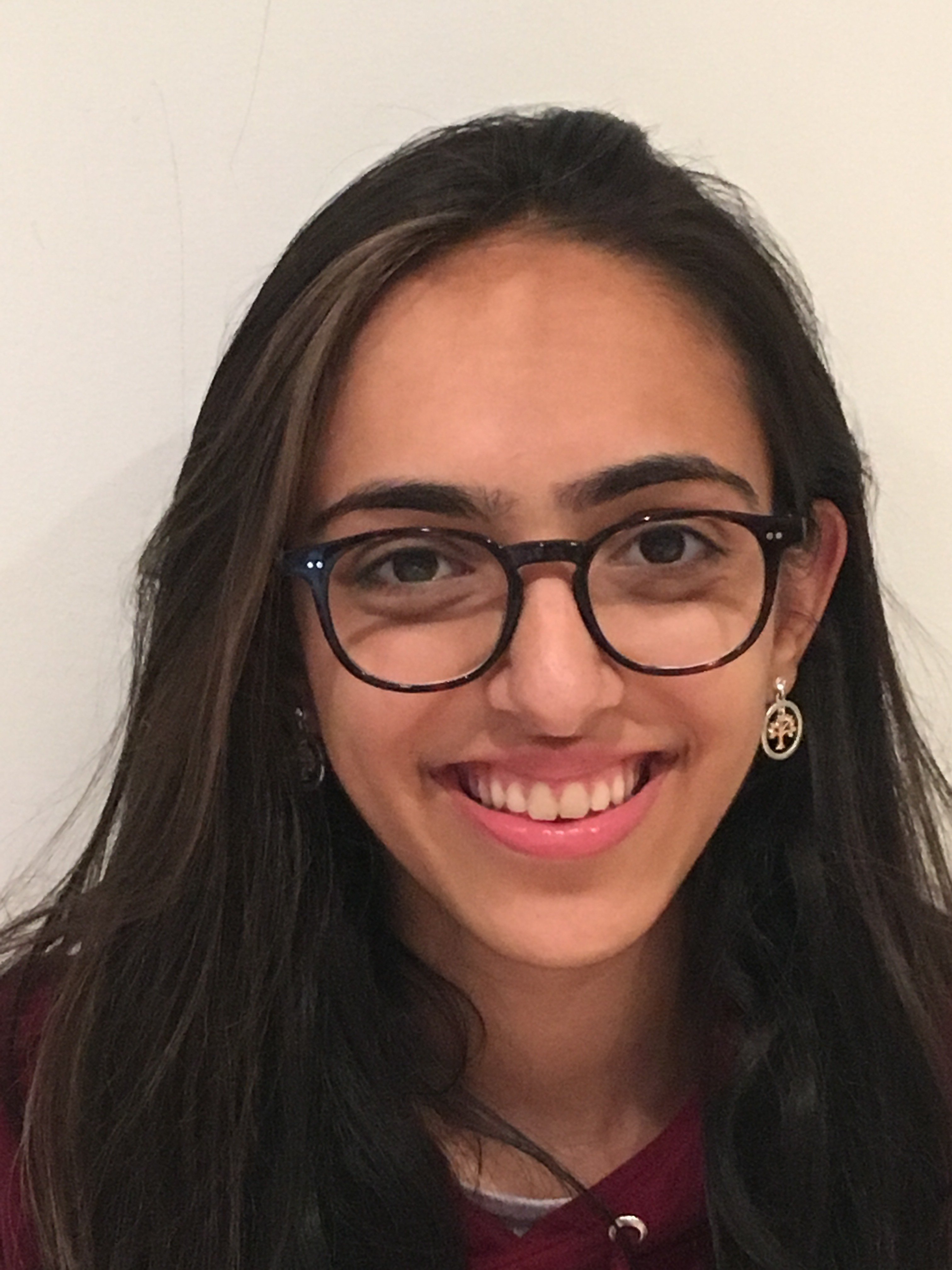So you want to make a podcast. One of the first questions to ask yourself is, what type of podcast do you want to create?
The humble podcast is actually very versatile. There’s countless different ways you can use the medium, from making a slick scripted audio drama, to recording candid conversations between friends.
The type of podcast you go for will have a massive effect on the kinds of listeners you’ll attract. The work involved on your end also changes significantly with different podcast formats. So it’s worth considering which one best suits both your artistic vision and practical capacity before jumping right in at the deep end.
The main things to think about are what kind of content you want to make, and how you want to make it. With that in mind, let’s go through the pros and cons of 7 tried-and-tested podcast formats to help you plan and structure your show.
1. Interview Podcast
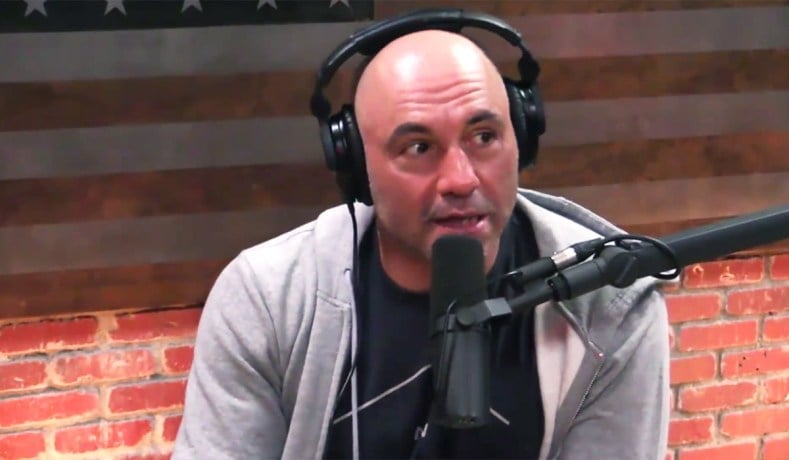
No surprises here. Due to the influence of creators like Joe Rogan, this is usually the first format people think of when they hear the word “podcast”. Provided you can get good guests, this format is also probably the easiest to produce as well. Interview podcasts are a great option for those who want to make a podcast where they get to know a topic they’re not already an expert in. Some are recorded in person, but many are recorded remotely, meaning the actual episode recording should take only an hour or two of your time.
Pros
- Your guests provide the content, you just have to ask the right questions. If you have a variety of guests on, they’ll provide a range of different perspectives and insights.
- Editing doesn’t have to be as immaculate with interviews. All the "umms and ahh’s" will be part of the natural conversation, rather than seeming out of place and jarring. You can still edit these out if you’d like to polish things up, but it’s not essential. This is a huge time saver.
- Your guests can help you grow your audience if they share their episodes with their followers on social media.
- You only need a computer, a mic, and recording for this podcast format, so there’s no need to be a technical genius.
Cons
- Interview podcasts are by far the most popular type of podcast, so it’s harder to stand out among all the rest.
- It’s difficult to book good guests, especially if you’re new to podcasting. Researching potential guests and their backgrounds can also take up a lot of time. Failing to prepare before your recordings will lead to poor quality content.
- You might have to be flexible with working times, to fit around your guests’ schedule i.e. be prepared to record late in the evenings and early in the mornings.
- You’re entirely reliant on guests for good content. So if you catch them on a bad day your episode will suffer as a result – unless you can turn it around during the course of the interview.
For advice on how to record a great interview podcast, check out our conversation with Skye Pillsbury. She has interviewed some of the biggest names in the industry on her show Inside Podcasting, and shares some of the wisdom she’s learned from them:
2. Solo Podcast
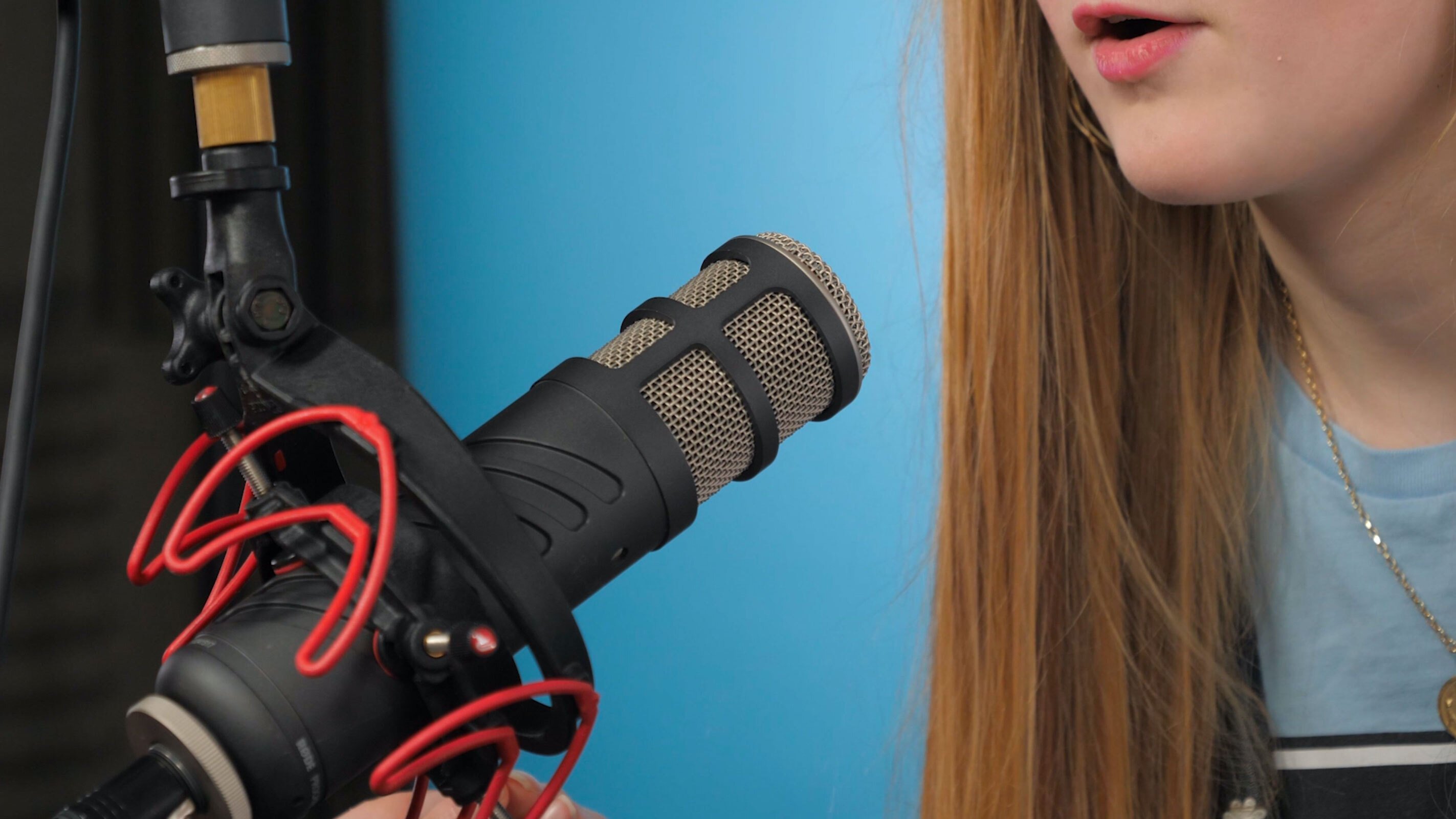
It’s just you and a mic. These types of podcasts are great if you have genuine expertise and years of experience to share with others. They’re perfect for establishing yourself as a go-to authority in your industry, helping to build your personal brand.
Pros
- The simplest set-up possible, all you need is a single mic and some free editing software.
- No need to conform to anyone else’s schedule or run ideas past anyone else. You have complete creative control, and you can approach each episode how you see fit.
- You’ll build a deep connection with your audience – it feels like you’re talking directly to them, so they’ll get to know and trust you as a host.
- Editing one voice is much easier than trying to edit multiple people all talking over each other.
- You can spend as much time as you want recording each episode – if you mess up a line, no problem, just say it again and edit out the repeats.
Cons
- If you aren’t actually an expert in your subject matter (think at least 10,000+ hours of experience), you’ll run out of meaningful things to talk about pretty quickly. You’ll also risk publicly exposing a lack of depth to your knowledge. Not a good look.
- It’s harder than it sounds to keep talking by yourself without anyone else there. It’ll take practice to make yourself sound natural.
- If you don’t plan your episodes, it’s easy to go off on long tangents. But if you script it out, you’ve got to be careful not to sound like you’re reading something out in a monotone voice. It takes practice to strike the right balance. This is much harder than it sounds.
- There’s no one else to bounce ideas off, or help with the planning and scripting of each episode.
Examples
3. Conversation Among Co-hosts
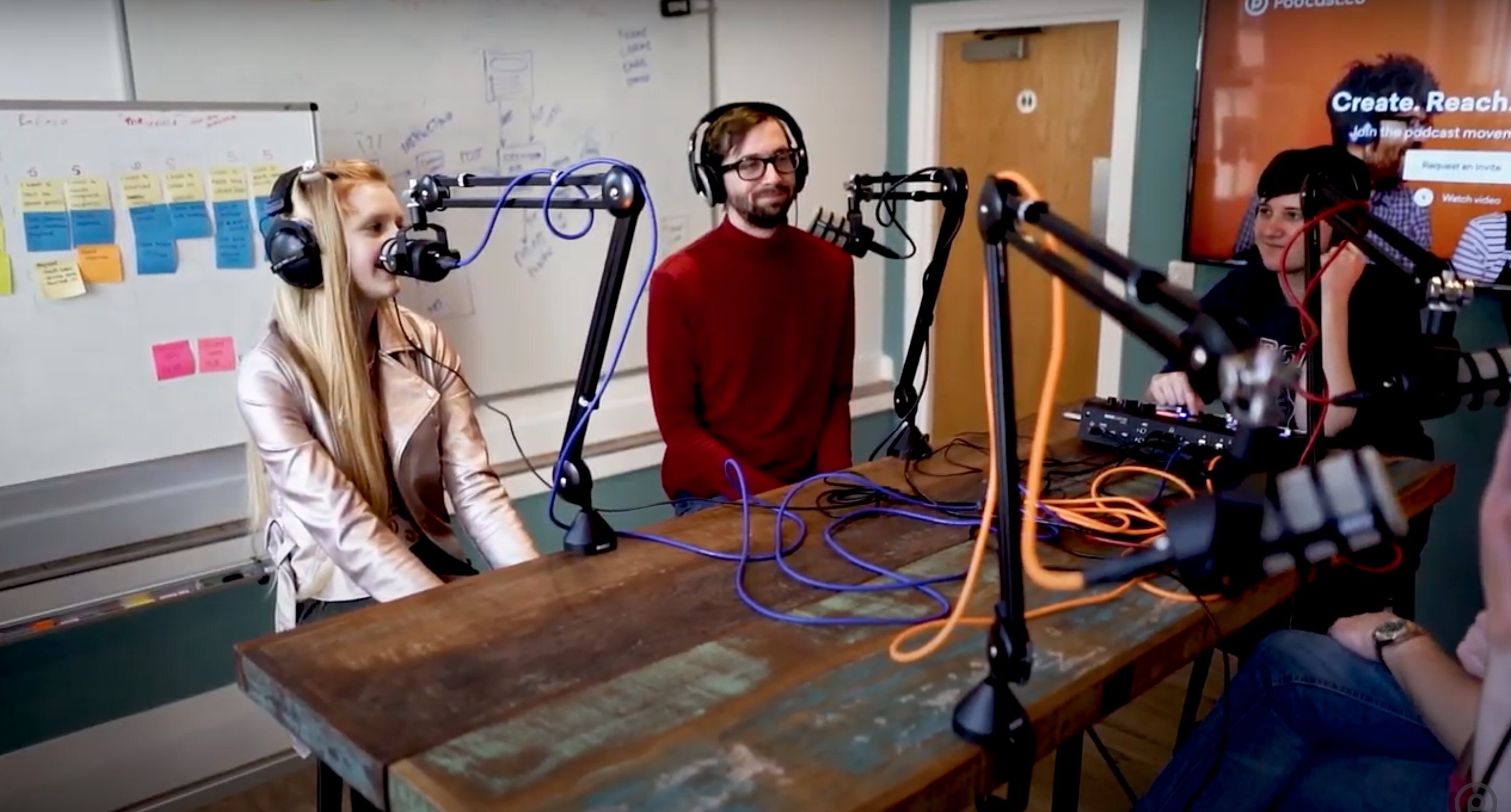
Get together with a pal or two every week and record your conversations. That’s all there is to it. Perfect for those who want a low effort podcast that’s fun to produce. This format is great if you’ve got someone who’s interested in the same topic as you and who you’d work well with behind the mics.
Pros
- You can split the prep and planning work between you.
- These are often the most fun to make - all you need is a solid and engaging co-host and some interesting talking points to cover.
- This format can turn into a fan favourite if you’ve got good chemistry. Listeners can feel like they’re catching up with friends.
- Conversational podcasts make for great live shows.
Cons
- Often these podcasts are only of interest to the hosts and their friends. If you and your co-host aren’t professional comedians, it can be hard to keep listeners engaged.
- It’s easy to make insider jokes and references that listeners won’t get / care about. You need to keep them in the loop at all times.
- Your schedules have to line up to make it work.
- It’s harder editing two or more voices than one on its own.
- You can’t do too much scripting or your conversation will sound stilted.
Examples
4. Panel or Roundtable Podcast
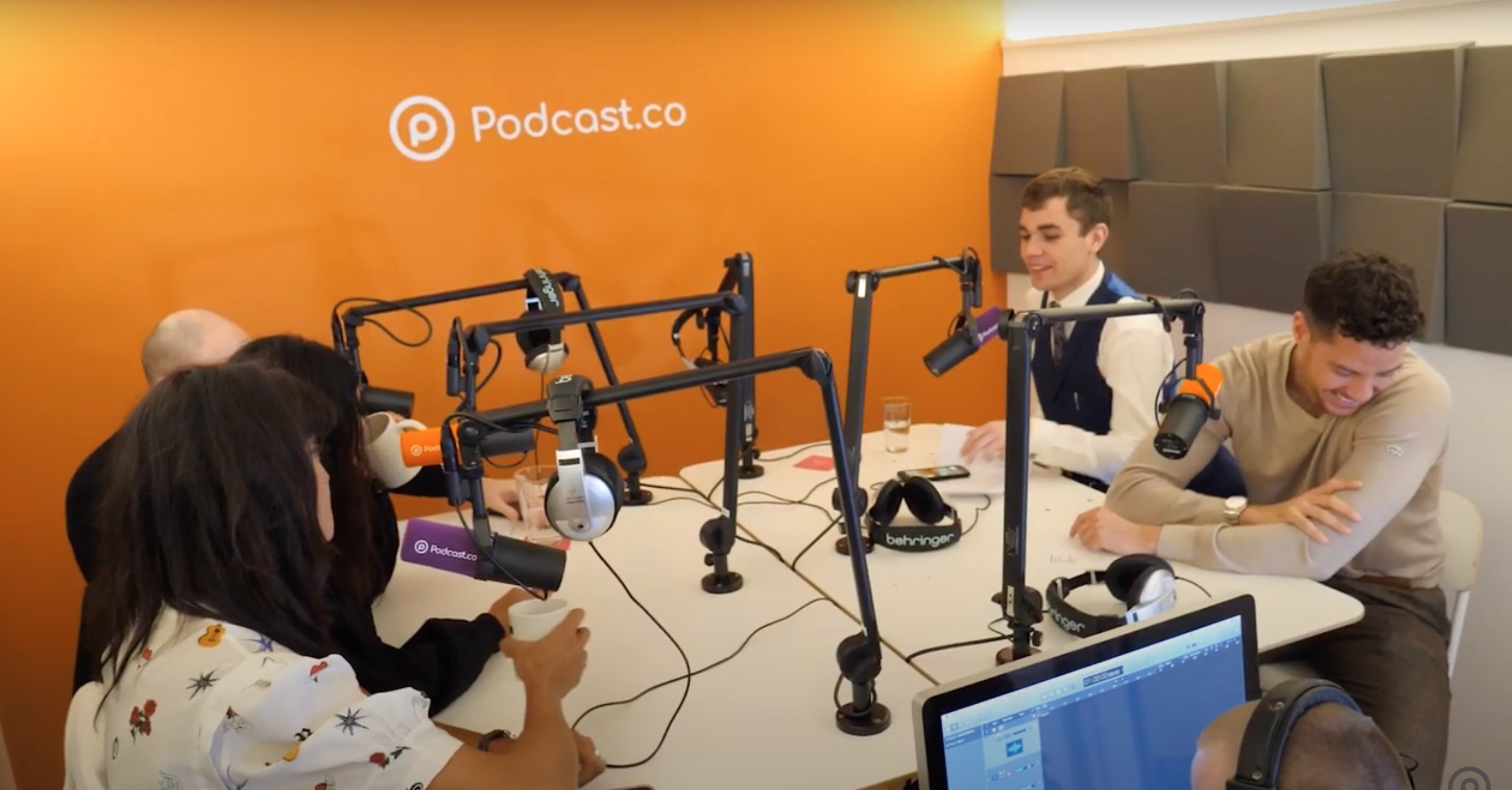
This type of podcast is like the interview one, but with more than two people. You can either have a returning panel of hosts and one new guest each week, or be the only regular host and have a new line up of guests every time – mix it up however you want.
Pros
- Your listeners will be treated to a range of opinions and insights, as the line-up changes each episode.
- Can provide listeners with a comprehensive view of a chosen subject. Both sides of an argument can be voiced in the episode.
- Again, it can help your marketing efforts if each guest shares the episode they contributed to.
- There’s less pressure on the host (even if there’s only one of you), as there’s a bunch of other people to provide talking points and conversation.
Cons
- You’ve got your work cut out booking guests and making sure they’re all free for a recording at the same time. It can also take longer to prep if you have more than one guest to research.
- It’s a skill keeping everyone included while stopping them talking over one another. Interrupting is quite natural in normal conversation, but to listeners it sounds confusing and messy. People talking over the top of each other ruins many podcasts of this format.
- You’ve got to be able to cut off your guests smoothly, so you can all spend enough time on each topic you have planned.
- The technical set-up is more complicated, as you might need a mic for each person. If you’re recording remotely, you’re relying on everyone’s internet connection to stay strong.
Examples
5. Non-Fictional Storytelling / Documentary

Documentary style podcasts are immersive, informative stories. They often take the listener on a journey through a narrative with a beginning, middle, and end. You can create an immersive experience with clips from interviews, movies, and other sound effects. These make whatever you’re teaching about an engaging and memorable story.
Pros
- As the whole thing needs to be tightly scripted, you have total control over how listeners will consume the content.
- Listeners are often able to take away a strong message from each episode.
- This market is definitely less saturated - but is still expected to grow rapidly over the coming years.
- The amount of work it takes to produce even a simple narrative podcast means it’s easier to maintain a high bar on quality. For example, interview shows don’t take much work, but this means they often sound sloppy and fail to build an audience.
Cons
- Episodes take a while (and quite a bit of money) to make. This format is very resource intensive making it difficult to do well if you can only afford a few hours a week.
- You need to have strong copywriting skills in order to script the narration that will tie different elements of the story together.
- You’ve got to be adept at editing. If you aren’t you’ll need to hire an audio editor if you want to splice together audio clips from a variety of sources.
- You’ve got to do your research properly – your audience won’t be forgiving if you make an error in your reporting.
- It’s difficult to get this right without a team behind you, unless you have a lot of time to spend on it. Ideally, you’ll want a team of journalists, editors and producers.
For advice on how to create a great non-fiction storytelling podcast, check out our conversation with veteran podcaster Daniele Bolelli. His podcast History on Fire was included in the ‘Best of 2015’ list on Apple Podcasts and is currently part of the Luminary podcast network:
6. Fiction Podcasts
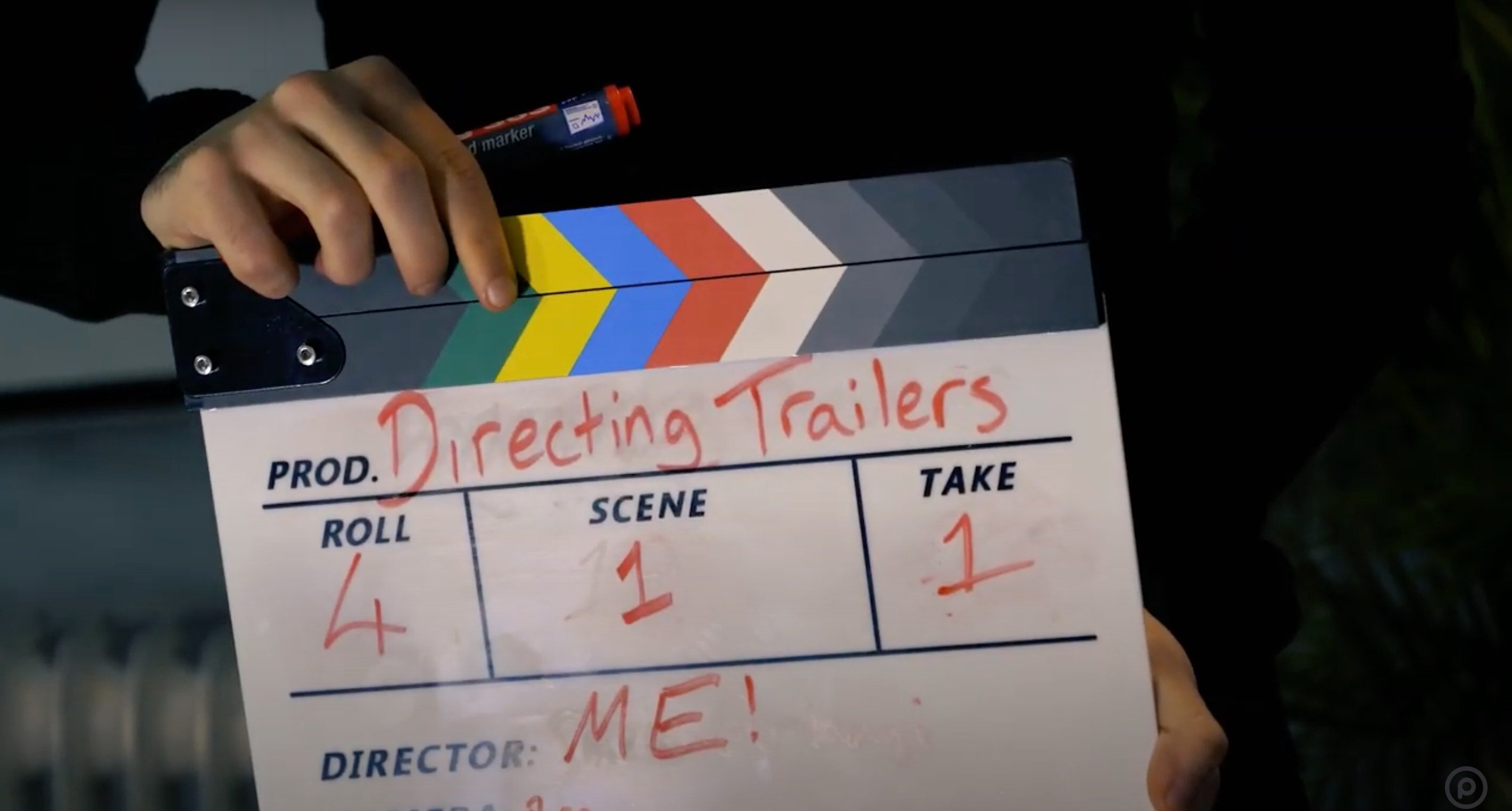
You can create whole worlds in the listener’s mind if you do it right. Podcasts are a brilliant medium for storytelling, and fiction podcasts are on the rise. If you’ve got a creative vision for a story and you love writing, an audio drama could be the right format for you.
Pros
- Audiences are likely to stick with you all the way through the series once they’re invested in how the story ends.
- If you’re making up your story, there’s no research required and no worries about getting facts and figures wrong.
- Despite their rise, audio dramas are still the least common podcast format, so there’s less fierce competition in this area.
Cons
- Building an audience takes time, especially as you’re competing with TV and movies for people’s story time.
- It takes a lot of planning, as you’ll probably have to plan the entire series before you even start episode 1, if you want a watertight plot.
- You’ve got to be creative to come up with a great story idea and write it well.
- You’re likely to need a team behind you to make a quality audio drama, as you’ll want a writer, voice actors, and audio producers to make it sound great. Trying to do it all by yourself will likely end up with the creation of a substandard show.
Examples
7. A Combination of Formats
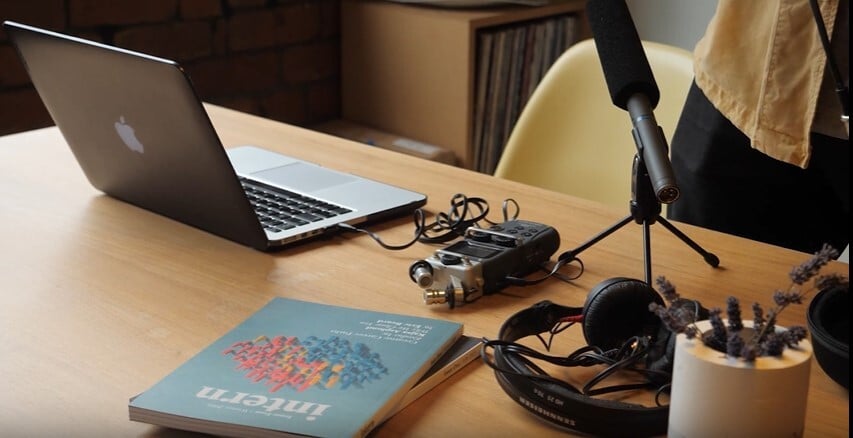
There are no rules in podcasting, so you’re free to do whatever you want! Many podcasters try out a few different formats to see which works best for their particular show. Just because you started out doing an interview podcast doesn’t mean you can’t throw in a few solo or roundtable episodes now and again. If you find that those episodes perform better than your standard ones, then it makes sense to create more of them. If not, you can always revert back to your standard formula.
Pros
- You can take the best bits of each podcast format and create a unique show that fits what your listeners are looking for perfectly.
- Greater creative freedom to prevent information in the way you see fit.
Cons
- You need to be willing for some of your experiments to fail. Not everything will work well and that’s ok.
- Playing around with your format too frequently can be off-putting for listeners.
- You may have to make a larger investment in equipment in order to facilitate the creations of multiple different formats.
Examples
Conclusion
There you have it, the most popular types of podcasts to make. Have a think about your production process when making your decision.
If you’re someone who likes having complete creative freedom, a solo podcast could be your best bet. But if you love working with people and you hate writing scripts, maybe go with a conversational podcast. It’s up to you to decide what you’d have the most fun making. The more enjoyable you find podcasting, the more energy you’ll have to put into it, and ultimately the better your show will be. So pick the podcast format you feel the most excited about creating.
And don’t worry too much about getting it perfectly right straight away. You might have to try out a few different types of podcast, and combine elements of them all, before you find one that works for you. There’s no shame in a bit of experimentation! So don’t let this step of choosing your podcast format become a hurdle to actually making anything.
For our full, comprehensive guide on how to start a podcast, click here.

